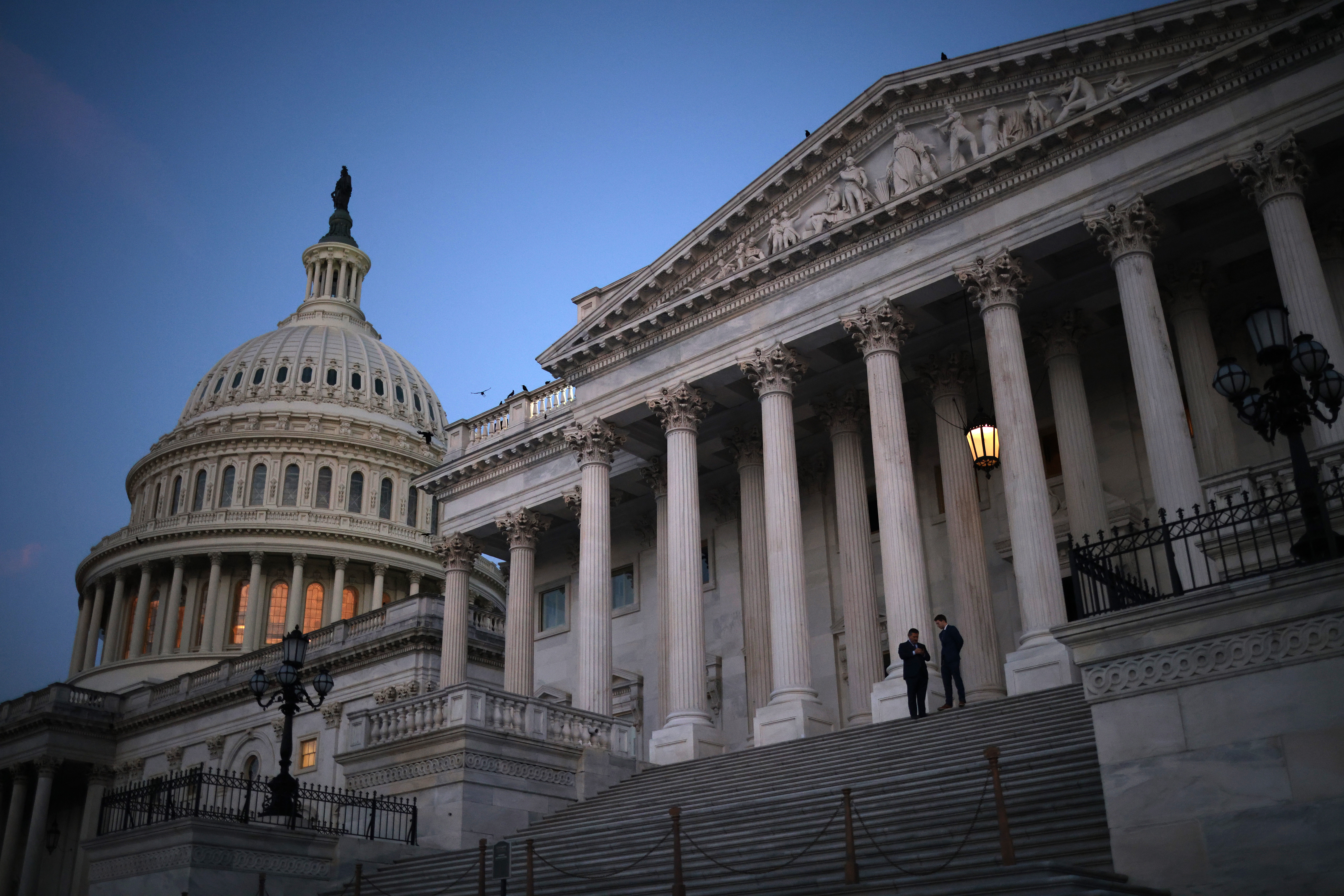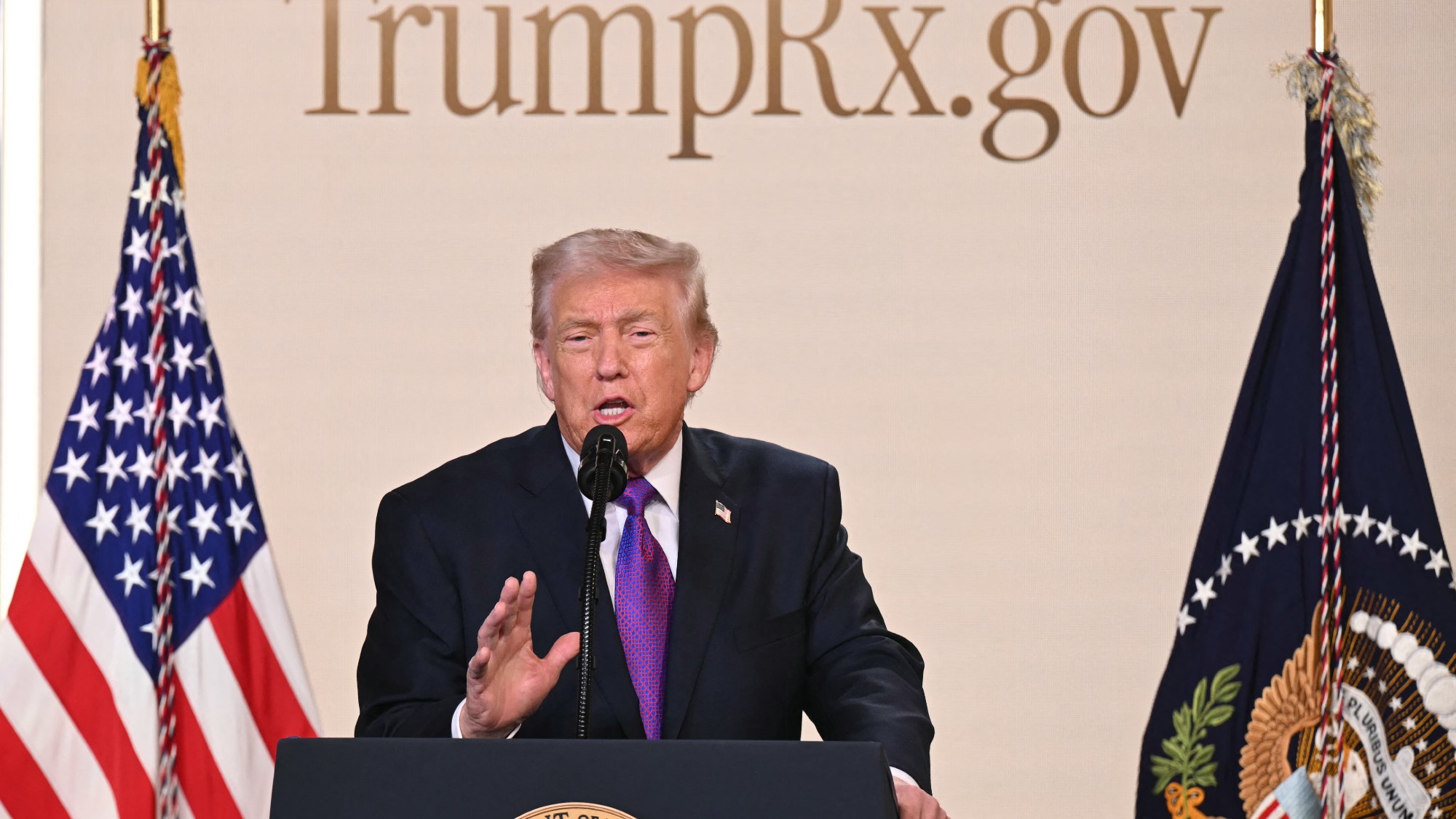The daily business briefing: August 11, 2021
Senate approves $3.5 trillion budget plan, WHO calls for $7.7 billion to help poor countries battle Delta, and more

- 1. Senate approves $3.5 trillion budget plan
- 2. WHO says it needs $7.7 billion to help low-income countries battle Delta variant
- 3. Saks owner and WeWork to convert empty department stores into co-working spaces
- 4. Futures unchanged as investors await July inflation data
- 5. China sentences Canadian to 11 years in case tied to Huawei
A free daily email with the biggest news stories of the day – and the best features from TheWeek.com
You are now subscribed
Your newsletter sign-up was successful
1. Senate approves $3.5 trillion budget plan
Less than 24 hours after the Senate approved a bipartisan $1 trillion infrastructure package, 69-30, senators adopted a $3.5 trillion budget blueprint on a 50-49 party-line vote early Wednesday morning. Approval of the budget plan came after an all-night "vote-a-rama" session where senators considered a raft of non-binding amendments. "The Democratic budget will bring a generational transformation for how our economy works for average Americans," Senate Majority Leader Chuck Schumer (D-N.Y.) said after the vote. Lawmakers will now have to write the legislation on expanding Medicare, providing free community college, paid family leave, fighting climate change, and other priorities of President Biden's agenda. Wednesday's vote unlocks the budget reconciliation process that will allow Senate Democrats to pass their package with no Republican votes, but both bills still have to pass in the House.
2. WHO says it needs $7.7 billion to help low-income countries battle Delta variant
A World Health Organization official said on Tuesday the agency needs $7.7 billion to help low-income countries battle the highly-infectious Delta variant of COVID-19. Dr. Bruce Aylward, a senior advisor to WHO's director-general, said the money would fund access to vaccines, but also COVID testing, masks, and treatments such as oxygen. WHO aims to have 40 percent of the global population fully vaccinated by the end of the year; that statistic sits at roughly 16 percent right now, according to Our World Data. Some nations have yet to administer a single dose. Meanwhile, the Delta variant is wreaking havoc and sending case numbers soaring. The WHO has called for a moratorium on booster shots in wealthy nations through September to allow low-income countries to catch up.
The Week
Escape your echo chamber. Get the facts behind the news, plus analysis from multiple perspectives.

Sign up for The Week's Free Newsletters
From our morning news briefing to a weekly Good News Newsletter, get the best of The Week delivered directly to your inbox.
From our morning news briefing to a weekly Good News Newsletter, get the best of The Week delivered directly to your inbox.
3. Saks owner and WeWork to convert empty department stores into co-working spaces
In a bid to tap into the remote-working trend, Hudson's Bay, the owner of embattled department store chain Saks Fifth Avenue, is teaming up with co-working company WeWork to convert empty department stores into co-working spaces. The first five SaksWorks spaces will open in the New York City area before the venture expands into other cities including Los Angeles and Boston. Users will pay $299 per month, and will have access to any SaksWorks location. The work spaces will be staffed and operated by WeWork employees, and will be located inside buildings owned by Hudson's Bay, including former Saks and Lord & Taylor stores. WeWork will get a cut of the revenue and will not have to pay rent, The Wall Street Journal reports. Saks declared bankruptcy last year. Hudson's Bay is one of several firms to see a business opportunity in the growing flexi-work movement.
4. Futures unchanged as investors await July inflation data
U.S. stock futures were steady ahead of inflation data due Wednesday morning. Investors will be looking for any indication that the Federal Reserve will begin to taper its stimulus measures aimed at helping the economy recover from the pandemic downturn. Futures for the Dow Jones Industrial Average and the S&P 500 were little changed hours before the opening bell, while those for the Nasdaq fell 0.2 percent. The Dow and S&P 500 both closed at record highs on Tuesday after the Senate passed a $1 trillion infrastructure bill.
A free daily email with the biggest news stories of the day – and the best features from TheWeek.com
5. China sentences Canadian to 11 years in case tied to Huawei
A court in Dandong, China, sentenced Canadian citizen Michael Spavor to 11 years in prison Wednesday on spying charges filed shortly after Canada detained well-connected Chinese business executive Meng Wanzhou in December 2018. Meng, the chief financial officer of Huawei Technologies and daughter of its founder, awaits a key ruling on her bid to avoid extradition to the U.S. to face criminal charges tied to violating Iran sanctions. Shortly after Meng's detention, China arrested Spavor and Canadian former diplomat Michael Kovrig on spying charges and abruptly increased the 15-year drug smuggling sentence for a third Canadian, Robert Lloyd Schellenberg, to a death sentence. Critics are calling China's court actions "hostage politics."
-
 Democrats seek calm and counterprogramming ahead of SOTU
Democrats seek calm and counterprogramming ahead of SOTUIN THE SPOTLIGHT How does the party out of power plan to mark the president’s first State of the Union speech of his second term? It’s still figuring that out.
-
 Climate change is creating more dangerous avalanches
Climate change is creating more dangerous avalanchesThe Explainer Several major ones have recently occurred
-
 What’s TrumpRx and who is it for?
What’s TrumpRx and who is it for?The Explainer The new drug-pricing site is designed to help uninsured Americans
-
 The daily business briefing: January 24, 2024
The daily business briefing: January 24, 2024Business Briefing The S&P 500 sets a third straight record, Netflix adds more subscribers than expected, and more
-
 The daily business briefing: January 23, 2024
The daily business briefing: January 23, 2024Business Briefing The Dow and S&P 500 set fresh records, Bitcoin falls as ETF enthusiasm fades, and more
-
 The daily business briefing: January 22, 2024
The daily business briefing: January 22, 2024Business Briefing FAA recommends inspections of a second Boeing 737 model, Macy's rejects Arkhouse bid, and more
-
 The daily business briefing: January 19, 2024
The daily business briefing: January 19, 2024Business Briefing Macy's to cut 2,350 jobs, Congress averts a government shutdown, and more
-
 The daily business briefing: January 18, 2024
The daily business briefing: January 18, 2024Business Briefing Shell suspends shipments in the Red Sea, December retail sales beat expectations, and more
-
 The daily business briefing: January 17, 2024
The daily business briefing: January 17, 2024Business Briefing Judge blocks JetBlue-Spirit merger plan, Goldman Sachs beats expectations with wealth-management boost, and more
-
 The daily business briefing: January 16, 2024
The daily business briefing: January 16, 2024Business Briefing Boeing steps up inspections on 737 Max 9 jets, Zelenskyy fights for world leaders' attention at Davos, and more
-
 The daily business briefing: January 12, 2024
The daily business briefing: January 12, 2024Business Briefing Inflation was slightly hotter than expected in December, Hertz is selling a third of its EVs to buy more gas cars, and more